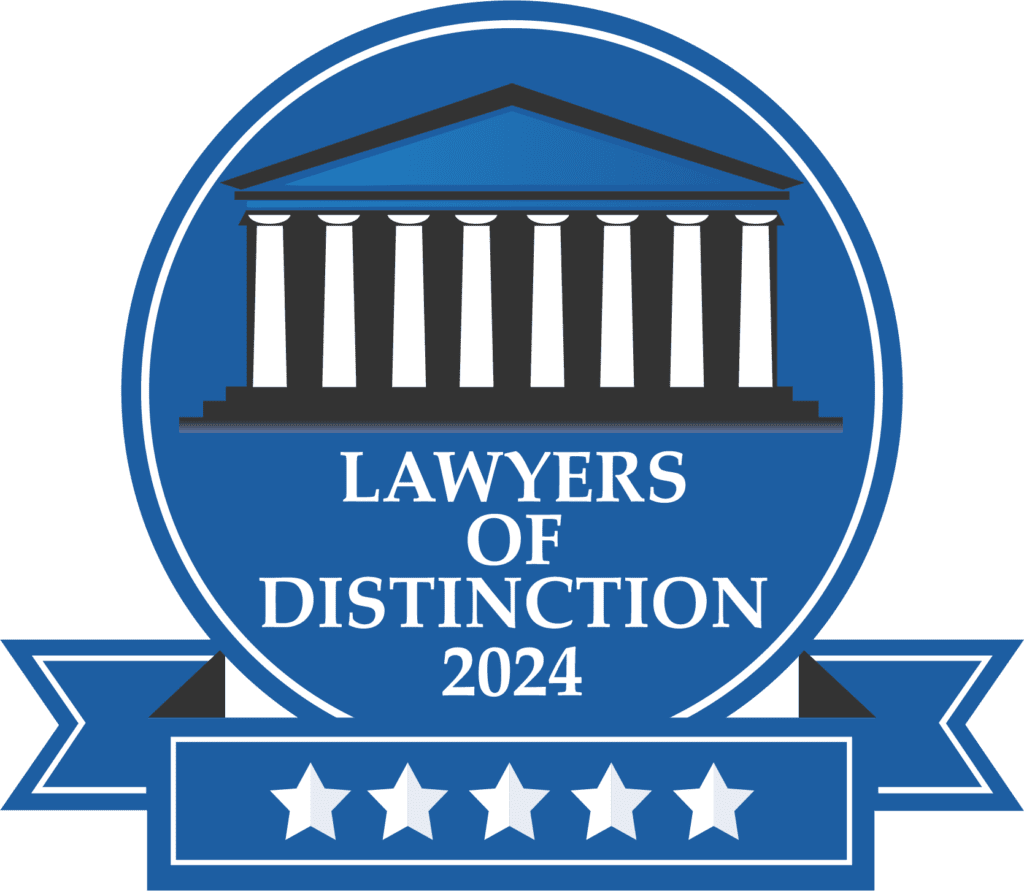Explore the Latest Trends in the Legal Industry and How They Might Impact Various Practice Areas
The legal industry is evolving rapidly, driven by technological advancements, regulatory changes, and shifting client expectations. As we move further into 2024, legal professionals must stay ahead of these trends to maintain a competitive edge.
At Lawyers of Distinction, we understand the importance of staying informed about industry trends. Our nationwide network of distinguished attorneys is committed to providing exceptional legal services, and we support our members with the resources they need to thrive in a dynamic legal landscape. If you’re navigating these changes, our team is here to help you understand and adapt to the latest trends.
Increased Use of Artificial Intelligence (AI) and Natural Language Processing in Legal Practices
In broad terms, artificial intelligence is intelligence a system that exhibits information. It is a field of computer science-based research that develops software methods to allow machine learning systems and AI models to perceive their surroundings. These are known as (Artificial Intelligence) AI machines. Its application can be used in industries, governments, or science.
The integration of (Artificial Intelligence) AI in legal practices is no longer a futuristic concept but a present reality. (Artificial Intelligence) AI tools are being used to streamline various tasks, including document review, legal research, and contract analysis. These tools significantly reduce the time required for mundane tasks, allowing lawyers to focus on more complex legal matters. These AI tools often rely on artificial neural networks, which consist of nodes or artificial neurons that mimic the human brain’s structure and functioning.
Deep learning techniques are being applied in AI tools for legal practices, enhancing their ability to process and analyze large datasets efficiently. Deep neural networks play a crucial role in improving the performance of these AI tools, enabling them to achieve incredible accuracy in tasks such as document classification and legal research.
(Artificial Intelligence) AI’s ability to quickly and accurately analyze large volumes of data is revolutionizing litigation strategies. Predictive analytics can help lawyers anticipate case outcomes based on historical data, enabling more informed decision-making. The success of these predictive models heavily depends on the quality and quantity of training data used. Furthermore, (Artificial Intelligence) AI-powered chatbots, utilizing natural language processing, are enhancing client interactions by providing instant responses to common queries, improving client satisfaction.
The (Artificial Intelligence) AI system allows human resources to work more effectively on more impactable problem areas than previously thought. (Artificial Intelligence) AI systems have many applications in the industry, it is used for the verification of documents and answering basic customer questions like “What is your closing date?”. Robotic machines can often perform “dull, dirty” or dangerous work for humans.
However, the rise of (Artificial Intelligence) AI also presents challenges. Lawyers must stay updated with (Artificial Intelligence) AI systems advancements and understand their ethical implications. Ensuring the security of (Artificial Intelligence) AI systems and maintaining client confidentiality are critical considerations as (Artificial Intelligence) AI continues to reshape the legal landscape.
Data Privacy and Cybersecurity Concerns
With the increasing reliance on digital platforms, data privacy, and cybersecurity have become paramount concerns. High-profile data breaches have highlighted the vulnerabilities in legal systems, prompting stricter regulations and greater scrutiny. Lawyers specializing in data privacy and cybersecurity are in high demand to help clients navigate these complex issues.
The introduction of new data protection laws, such as the General Data Protection Regulation (GDPR) and the California Consumer Privacy Act (CCPA), has significant implications for businesses worldwide. Compliance with these regulations requires comprehensive understanding and meticulous implementation, creating opportunities for legal professionals to provide valuable guidance.
Cybersecurity threats also necessitate robust defense mechanisms. Law firms must invest in advanced security measures to protect sensitive client information. This trend underscores the need for continuous education and awareness about evolving cyber threats and the legal frameworks designed to combat them.
Remote Work and Virtual Law Firms
The COVID-19 pandemic has accelerated the adoption of remote work, leading to the rise of virtual law firms. This trend offers numerous benefits, including cost savings, increased flexibility, and access to a broader talent pool. Virtual law firms are leveraging technology to offer seamless legal services, often with reduced overhead costs compared to traditional firms.
Remote legal firms operate completely online and provide clients with legal support with no physically available offices. The legal profession works remotely for law firms by utilizing technology to communicate, share data, and handle legal cases. 20 June 2022.
Remote work also presents unique challenges, such as maintaining team cohesion and ensuring effective communication. Legal professionals must adapt to virtual collaboration tools and develop strategies to foster a productive remote work environment. Additionally, understanding the legal implications of remote work policies is crucial for advising clients on best practices and compliance.
The shift toward virtual law firms is likely to continue, driven by the demand for flexible work arrangements and the ongoing development of remote work technologies. This trend is transforming the traditional law firm model, creating new opportunities and challenges for legal professionals.
Although many states like Delaware and New Jersey allow virtual office space, some states have relaxed the law. New Jersey also slashed it last year.
Environmental, Social, and Governance (ESG) Factors
Environmental, Social, and Governance (ESG) factors are increasingly influencing corporate decision-making. Investors, consumers, and regulators are demanding greater transparency and accountability in how companies address ESG issues. This trend is driving a growing need for legal expertise in sustainability, corporate governance, and ethical business practices.
ESG is the term for a set of policies, practices, or metrics adopted by organizations that aim at minimizing or improving the negative impacts on the environment, and society.
UN officials confirm this. It has been argued that a UN 2004 report titled “Who Cares Wins” is among the most important mainstream examples of ESG in a contemporary context. The report is heavily supportive of ESG for companies to embrace it.
Lawyers are playing a pivotal role in helping businesses navigate ESG-related regulations and develop comprehensive compliance strategies. This includes advising on environmental impact assessments, human rights policies, and corporate governance structures. As ESG considerations become integral to business operations, legal professionals must stay informed about evolving standards and best practices.
The emphasis on ESG is also shaping litigation trends. Companies failing to meet ESG expectations face increased legal risks, including shareholder lawsuits and regulatory penalties. Lawyers must be prepared to address these challenges and provide proactive counsel to mitigate potential liabilities.
Alternative Legal Service Providers (ALSPs)
The rise of Alternative Legal Service Providers (ALSPs) is transforming the legal services market. ALSPs offer specialized services, such as legal process outsourcing, e-discovery, and contract management, often at lower costs than traditional law firms. This trend is driven by clients’ demand for more cost-effective and efficient legal solutions.
ALSPs are leveraging technology to deliver innovative legal services, challenging traditional law firms to adapt and compete. Law firms must explore strategic partnerships with ALSPs or develop in-house capabilities to meet client’s evolving needs. This shift requires a reevaluation of business models and a focus on delivering value-added services.
The growth of ALSPs also highlights the need for legal professionals to develop new skills and competencies. Understanding technology-driven solutions and integrating them into practice can enhance service delivery and client satisfaction. As ALSPs continue to gain traction, the legal industry will witness further innovation and collaboration.
Regulatory Changes and Compliance
Regulatory changes are a constant in the legal landscape, and staying compliant is crucial for businesses across industries. In 2024, several key regulatory developments are expected to impact various sectors, including finance, healthcare, and technology. Legal professionals must stay abreast of these changes to provide accurate and timely advice to clients.
The evolving regulatory environment presents both challenges and opportunities. On one hand, businesses face increased compliance burdens and potential penalties for non-compliance. On the other hand, legal professionals specializing in regulatory compliance are in high demand, offering valuable expertise to navigate complex regulations.
Staying informed about regulatory changes requires continuous education and engagement with industry developments. Legal professionals must develop strategies to anticipate and respond to new regulations, ensuring their clients remain compliant and competitive in a dynamic market.
Why Choose Lawyers of Distinction for Your Case?
Lawyers of Distinction is dedicated to helping legal professionals stay ahead of industry trends and excel in their practice areas. Our members have access to a wealth of resources, including exclusive networking opportunities, comprehensive member profiles, and valuable marketing tools. We are committed to supporting our members’ success in a rapidly changing legal landscape.
By joining Lawyers of Distinction, you gain recognition for your legal achievements and access to a nationwide network of distinguished attorneys. Our membership team is here to make onboarding easy and ensure you benefit from our extensive offerings. Contact us today to learn more about how we can help you thrive in the legal industry.
For more information, call us at (877) 335-3021 or visit our contact form at https://www.lawyersofdistinction.com/contact/.




